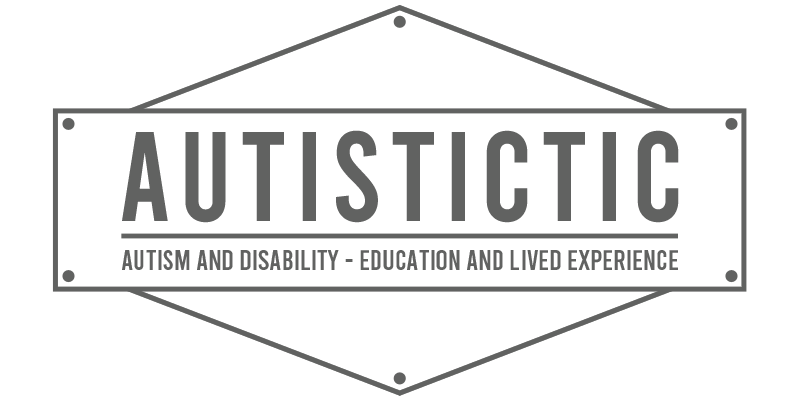HOME » BLOG » DEVELOPING BETTER AUTISM LANGUAGE

DEVELOPING BETTER AUTISM LANGUAGE

DEVELOPING BETTER AUTISM LANGUAGE
Language has power. It reflects our attitude towards the things we speak about. It shapes our perception of reality and in turn commonly used language shapes our actual reality.
Most language commonly used in the autism community is highly pathologized. It paints autism as a disorder. Everything is “a deficit”, “inappropriate”, “a lack of”, etc. implying it’s the autism causing all the problems autistic people have. This in turn implies it is the autistic person who has to change, become less autistic, more “normal”.
In reality a lot of our problems stem from a lack of understanding, acceptance, accommodation, and inclusion. And a lot of what is being pathologized by “professionals” are in fact natural, even healthy, autistic traits and behaviors.
In order to change how autistic people are perceived and treated in our society it is essential that we change the language used around autism.
| PATHOLOGIZED | BETTER |
|---|---|
| People with autism | Autistic people |
| High/low functioning autism Mild/severe autism | Individual, varying, fluctuating support needs |
| Autism is a disease/disorder | Autism is a neurological phenomenon |
| Autism Spectrum Disorder | Autism |
| Symptoms of autism | Autistic traits |
| Autism awareness | Understanding of autism |
| Suffers from autism | Suffers due to ableism lack of acceptance lack of accommodation (whichever is appropriate) |
| Challenging behavior Problem behavior | Coping mechanism Sign of distress Self-harm Autistic trait (whichever is appropriate) |
| Special needs | Needs |
| Co-morbid | Co-occurring |
| Delayed | Develops in their own time |
| Restrictive routines/rituals | Routines/rituals necessary to feel safe and secure |
| Laughs at inappropriate things | Laughs at things others may not find funny |
| Speech deficit | Needs access to alternative communication methods |
| Lacks eye contact | Eye contact is avoided for self-care |
| Lacks empathy | Experiences and expresses empathy differently than non-autistic people. |
| Lacks emotional response | Experiences and expresses emotions differently than non-autistic people |
| Lacks social skills | Has different natural social skills than non-autistic people |
| Inappropriate play | Plays in their own way |
| Inappropriate object attachment | Cherishes certain objects |
| Poor eating | Needs a diet that accommodates their individual needs |
| Irrelevant remarks | Loves talking about their interests |
| PATHOLOGIZED | BETTER |
|---|---|
| “They should be independent!” | “They should be autonomous.” |
| “We need autism awareness!” | “We need understanding, acceptance, accommodation, and inclusion of autistic people.” |
| “They should learn to speak!” | “They should find communication methods that work for them.” |
| “They should try to be more normal!” | “They should be happy and healthy as their autistic self.” |
Finally let me add that yes, there are exceptions where things mentioned above actually do present a problem for an autistic person and not just for other people who decide things are a problem. In that case it’s fine to use thoughtful, respectful language indicating that. Most of the time though everything about us gets pathologized even though it shouldn’t be which is what this list is about.
Do you have more examples of problematic autism language? Please share!

Leave a Reply